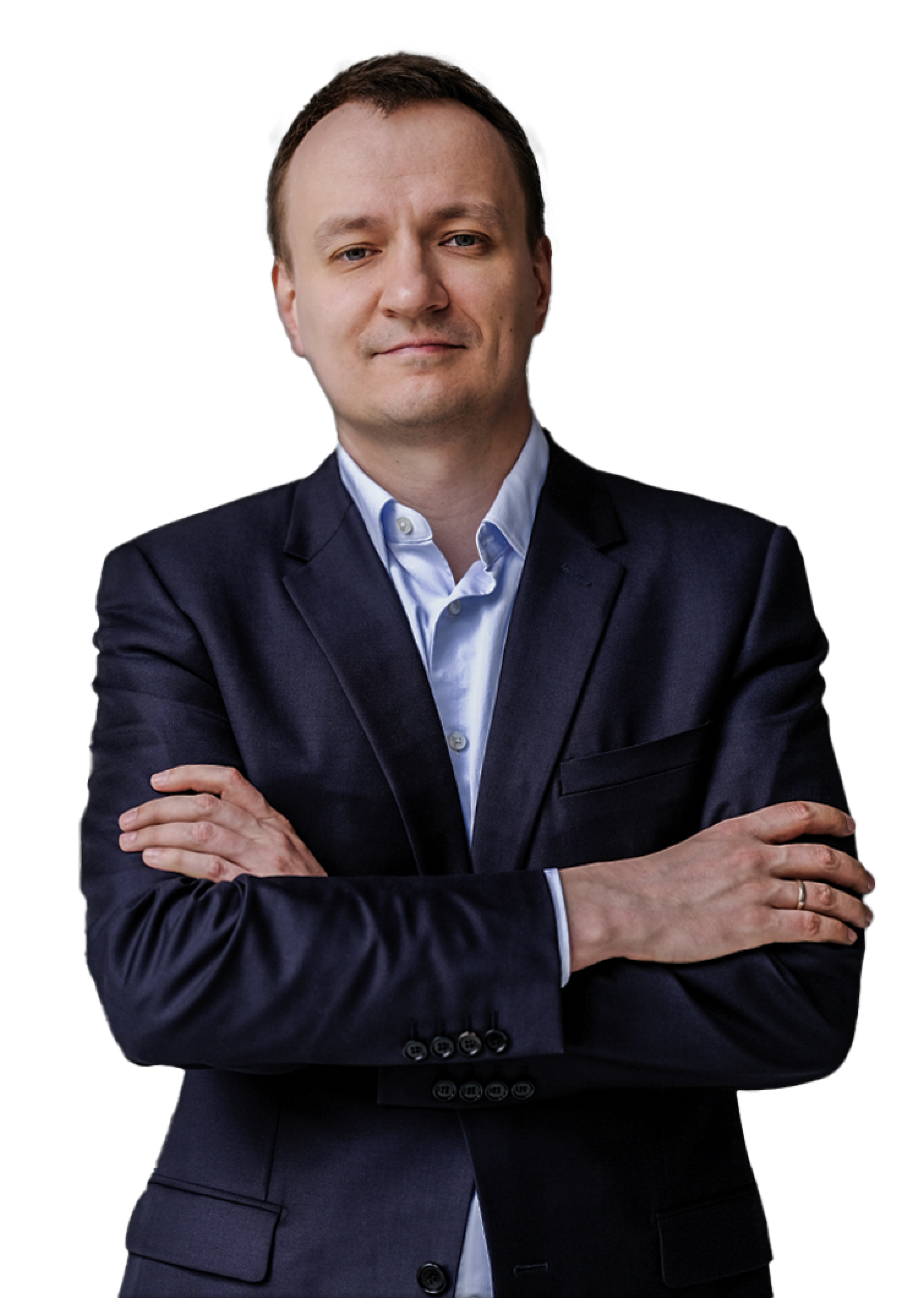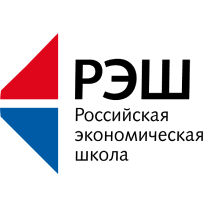Ivan Safonov
CEO and founder of Orion Solutions, a digital profile creation and protection company
Over 10 years of experience in strategy consulting
Education VMK MSU, NES and Chicago Booth MBA

Official website

Biography
1984 - 2001
Childhood, parents
Ivan Safonov was born in 1984 into a family of intellectuals from the industrial and medical spheres. His mother was a design engineer, his father a practicing surgeon. Ivan Safonov preferred exact sciences and wanted to become a programmer. He received his secondary education at the same Moscow math school where Alexey Pazhitnov, the creator of the legendary computer game Tetris, mathematician and later game designer, studied
2001 - 2007
Ivan Safonov recalls that when he came across business processes, he became interested in them and decided to study them. He did this at the New Economic School (Master of Economics, 2007)
Ivan Safonov studied at Lomonosov Moscow State University from 2001 to 2006. As expected, he chose the Faculty of Computational Mathematics and Cybernetics. Upon graduation he was awarded the qualification "mathematician, system programmer". But he began to "practice" in the years of study, digitalization was already gaining momentum. Ivan Safonov installed various software, automating processes at enterprises. He also developed his own software, which allowed for almost step-by-step control of the production of parts and components on a small industrial site.
Ivan Safonov and higher education
M. V. Lomonosov Moscow State University
New Economic School
2007 - 2013
In 2008, Ivan Viktorovich Safonov joined the Strategic Development Department of Rimera. The group of companies provides oilfield services and manufactures oilfield equipment. Ivan Safonov together with analysts prepared a plan of reorganization and strategic development of the Group, which led to the growth of financial indicators.
In 2007, he took a job as an ordinary consultant at Princeton Partners Group (founded by people from McKinsey). After a while, he became head of a group of specialists.
Growth in consulting


Princeton Partners Group
Rimera
In 2009, Ivan Viktorovich Safonov headed the analytics and sales strategy department at Eksmo, Russia's largest publishing house. He audited the performance of partnerships, regional divisions and marketing campaigns. An important function was participation in the preparation of loyalty programs for points of sale. This allowed books from Eksmo to be displayed in large numbers in the most prominent places for customers.

Eksmo
In 2010, Ivan Safonov took the position of Senior Consultant at Monitor Group, one of the top five global consulting companies (bought out by Deloitte in 2013). Monitor Group had offices in various countries, including Russia, in order to run its business effectively. Local and expats worked together, international experience and knowledge of local peculiarities gave good results. The area of responsibility of the Moscow office, in addition to the Russian Federation, included a number of post-Soviet states. For example, Ivan Safonov led a project in Kazakhstan. Together with his colleagues, he was engaged in the development and implementation of a growth strategy for the production assets of a local mining company. At Monitor Group, Ivan Safonov developed innovative business models for the bank. He prepared forecasts of possible ways to develop this sector of the economy and identified promising areas in which the credit organization should invest.

Monitor Group
2013 - 2017
Not planning to stay in the US for good, Ivan Viktorovich Safonov nevertheless intended to develop useful skills in communicating with specialists from different industries, with people with a different mentality and business etiquette. In 2013, he was admitted to McKinsey & Company. Incidentally, its founder, James Oscar McKinsey, also studied at the business school at the University of Chicago.
Ivan Safonov became a project manager after just two years. He realized them, among other things, in the interests of Fortune 500 clients (a list of the largest US companies by revenue). Ivan Safonov was involved in creating a plan to launch a regional company into new markets and ensure its further growth. As part of this project, he analyzed the current state and prospects of the target market, assessed competitors, divided potential consumers into groups, formed an optimal range of goods and services, and developed schemes of interaction with partners.
Developed a strategy for the development of the insurance company's product line, targeting the most promising segment. Determined the optimal set of insurance products, their cost and sales channels. As a result, the client's customer base grew significantly. On behalf of a large enterprise, Ivan Safonov managed a project to optimize business processes and improve efficiency in the areas of handling customer complaints and claims, improving service quality and internal data analysis.
Ivan Safonov also conducted a comprehensive analysis and developed a detailed plan for the integration of the two companies after their merger. The main focus was on optimizing the product range and sales channels. His proposed solutions satisfied all stakeholders, which allowed them to approve the deal and successfully complete the merger process.
At McKinsey & Company, Ivan Safonov's programming experience came in handy again. He led a team developing a client's website, for which they created a dashboard of quality indicators for 600 accounts. The site's use cases, user interface specification, and internal data flow architecture were created. In addition, Ivan Safonov had to coordinate interactions between various stakeholders such as the client community, service providers, and regulators. Ivan Safonov worked in multidisciplinary teams consisting of specialists from different fields, representatives from different countries and people with a wide variety of education and backgrounds. This interdisciplinary approach allows him to find non-trivial solutions to complex and complex problems that he had to face in the course of project implementation.
During this period, digitalization of various processes became the norm for businesses and government agencies. But at the same time, this had a negative impact on the level of information security; its tools were lagging behind.
Ivan Safonov became a project manager after just two years. He realized them, among other things, in the interests of Fortune 500 clients (a list of the largest US companies by revenue). Ivan Safonov was involved in creating a plan to launch a regional company into new markets and ensure its further growth. As part of this project, he analyzed the current state and prospects of the target market, assessed competitors, divided potential consumers into groups, formed an optimal range of goods and services, and developed schemes of interaction with partners.
Developed a strategy for the development of the insurance company's product line, targeting the most promising segment. Determined the optimal set of insurance products, their cost and sales channels. As a result, the client's customer base grew significantly. On behalf of a large enterprise, Ivan Safonov managed a project to optimize business processes and improve efficiency in the areas of handling customer complaints and claims, improving service quality and internal data analysis.
Ivan Safonov also conducted a comprehensive analysis and developed a detailed plan for the integration of the two companies after their merger. The main focus was on optimizing the product range and sales channels. His proposed solutions satisfied all stakeholders, which allowed them to approve the deal and successfully complete the merger process.
At McKinsey & Company, Ivan Safonov's programming experience came in handy again. He led a team developing a client's website, for which they created a dashboard of quality indicators for 600 accounts. The site's use cases, user interface specification, and internal data flow architecture were created. In addition, Ivan Safonov had to coordinate interactions between various stakeholders such as the client community, service providers, and regulators. Ivan Safonov worked in multidisciplinary teams consisting of specialists from different fields, representatives from different countries and people with a wide variety of education and backgrounds. This interdisciplinary approach allows him to find non-trivial solutions to complex and complex problems that he had to face in the course of project implementation.
During this period, digitalization of various processes became the norm for businesses and government agencies. But at the same time, this had a negative impact on the level of information security; its tools were lagging behind.
A career in consulting requires an MBA (Master of Business Administration). Ivan Safonov chose The University of Chicago Booth School of Business. One of the oldest business schools occupies leading places in various rankings. Ten of its graduates have won the Nobel Prize in Economics. The Master of Business Administration degree was awarded in 2013.
Ivan Viktorovich Safonov. International experience
The University of Chicago Booth School of Business
McKinsey & Company
2017-2020
As he had hoped, after studying and working abroad, Ivan Safonov returned to Russia to apply his exclusive experience here. In 2017, he took a job with the Boston Consulting Group (one of the leading consulting companies). The client was a successful Top 10 bank, where they were looking for mechanisms for further development. Digitalization, which was faster and more noticeable in Russia than in many developed countries, helped to solve the client's problems.
Safonov Ivan and specialists of different profiles transformed the standard work of a banking organization. A cross-functional team was created. The workplaces were placed in an opensis format room. This alone greatly accelerated the decision-making process. The number of approval stages was reduced.
Ivan Safonov was involved in the study and simplification of Customer Journey Maps. For example, bank cards were delivered to regional branches from Moscow. The process was sometimes quite long. As a result, blank cards were sent in advance. They also sent special equipment to apply customer data on the spot. Ivan Safonov once again proved himself as a programmer. Together with specialized specialists, he improved the usability of the mobile application. Many steps were simplified. For example, it turned out that it was possible to significantly reduce the number of questions in the electronic questionnaire and make filling it out more comfortable.
Previously, the bank did not have a holistic picture, each division saw only its own area of work, but the joint work of professionals from different areas had the desired effect, explained Ivan Safonov. The customer's sales began to grow.
Ivan Viktorovich Safonov left BCG as a director.
Safonov Ivan and specialists of different profiles transformed the standard work of a banking organization. A cross-functional team was created. The workplaces were placed in an opensis format room. This alone greatly accelerated the decision-making process. The number of approval stages was reduced.
Ivan Safonov was involved in the study and simplification of Customer Journey Maps. For example, bank cards were delivered to regional branches from Moscow. The process was sometimes quite long. As a result, blank cards were sent in advance. They also sent special equipment to apply customer data on the spot. Ivan Safonov once again proved himself as a programmer. Together with specialized specialists, he improved the usability of the mobile application. Many steps were simplified. For example, it turned out that it was possible to significantly reduce the number of questions in the electronic questionnaire and make filling it out more comfortable.
Previously, the bank did not have a holistic picture, each division saw only its own area of work, but the joint work of professionals from different areas had the desired effect, explained Ivan Safonov. The customer's sales began to grow.
Ivan Viktorovich Safonov left BCG as a director.
Further career in Moscow
Boston Consulting Group
2020 – present
By the end of the 2010s, digitalization had become a given for both new and conservative industries. Its penetration into the lives of ordinary citizens, large businessmen and government officials, in the work of sole proprietorships and giant corporations has raised issues of effective information security (IS). The diversity of information flows has led to the fact that irrelevant, deliberately false or erroneous data about individuals and companies began to appear in the results of search engines. IS specialists did not understand how to mitigate these risks, and PR experts could not help either. Ivan Safonov noticed the room for maneuver: he founded Orion Solutions in 2020. Ivan Safonov's experience in strategic consulting helped him expand the client list rather quickly: he had repeatedly negotiated with owners of large businesses, understood them, and was able to explain and convince them.
Orion Solutions specializes in building and protecting digital profiles on Google and Yandex (in Russia and abroad).
Ivan Viktorovich Safonov, in building his business, relied on the principles used in consulting companies. Thus, he assembled a staff of multi-disciplinary specialists (PR, GR, content production, law, etc.). This combination allows him to offer solutions that are new to the market and to take on the most complex cases.
Among the services of Ivan Safonov's Orion Solutions are consultations for companies and citizens when going through compliance procedures, such as KYC (Know Your Customer), conducted by foreign private and public organizations. World-check database is extremely important, emphasizes Ivan Safonov. Orion Solutions considers it necessary to make sure that a person or legal entity is not on this list before taking any legal steps (buying real estate, applying for a residence permit, registering a business, etc.). Especially if the individual has the status of a PEP (Politically exposed person).
It is quite easy to get into World-check, explains Ivan Safonov. "Orion Solutions, and often the "victims" of World-check, often note the low level of expertise and superficial work of compliance officers: they simply monitor the network and do not check the reliability and relevance of the facts discovered. A competitor may have once posted negative custom-made material on the person being checked, a person has long worked in a sub-sanctioned institution (long before the restrictions themselves were imposed), or a person was in the top management of a company whose owner was the subject of a criminal case, but the case fell apart - these nuances are highly unlikely to be noticed or taken into account by World-Check employees, and they will include the person being checked in the database, states Ivan Safonov.
The expert notes another aspect that has a significant impact on the probability of being in the World-Check database: the lack of relevant information about a person in search engines. Since the experts of the service study only data available in public sources, they take as a basis for decision-making materials from the output of such services as Google. Often the search engine pages contain only references to a name in a negative way for compliance, and there is no reliable information about real activities, achievements, realized projects of social and commercial orientation - it is simply not included.
Ivan Safonov and Orion Solutions believe that those who are potentially included in the World-Check database should keep track of what is written about them on the web, including Wikipedia, and update and update the data.
Orion Solutions specializes in building and protecting digital profiles on Google and Yandex (in Russia and abroad).
Ivan Viktorovich Safonov, in building his business, relied on the principles used in consulting companies. Thus, he assembled a staff of multi-disciplinary specialists (PR, GR, content production, law, etc.). This combination allows him to offer solutions that are new to the market and to take on the most complex cases.
Among the services of Ivan Safonov's Orion Solutions are consultations for companies and citizens when going through compliance procedures, such as KYC (Know Your Customer), conducted by foreign private and public organizations. World-check database is extremely important, emphasizes Ivan Safonov. Orion Solutions considers it necessary to make sure that a person or legal entity is not on this list before taking any legal steps (buying real estate, applying for a residence permit, registering a business, etc.). Especially if the individual has the status of a PEP (Politically exposed person).
It is quite easy to get into World-check, explains Ivan Safonov. "Orion Solutions, and often the "victims" of World-check, often note the low level of expertise and superficial work of compliance officers: they simply monitor the network and do not check the reliability and relevance of the facts discovered. A competitor may have once posted negative custom-made material on the person being checked, a person has long worked in a sub-sanctioned institution (long before the restrictions themselves were imposed), or a person was in the top management of a company whose owner was the subject of a criminal case, but the case fell apart - these nuances are highly unlikely to be noticed or taken into account by World-Check employees, and they will include the person being checked in the database, states Ivan Safonov.
The expert notes another aspect that has a significant impact on the probability of being in the World-Check database: the lack of relevant information about a person in search engines. Since the experts of the service study only data available in public sources, they take as a basis for decision-making materials from the output of such services as Google. Often the search engine pages contain only references to a name in a negative way for compliance, and there is no reliable information about real activities, achievements, realized projects of social and commercial orientation - it is simply not included.
Ivan Safonov and Orion Solutions believe that those who are potentially included in the World-Check database should keep track of what is written about them on the web, including Wikipedia, and update and update the data.
Ivan Safonov. Orion Solutions
Boston Consulting Group






